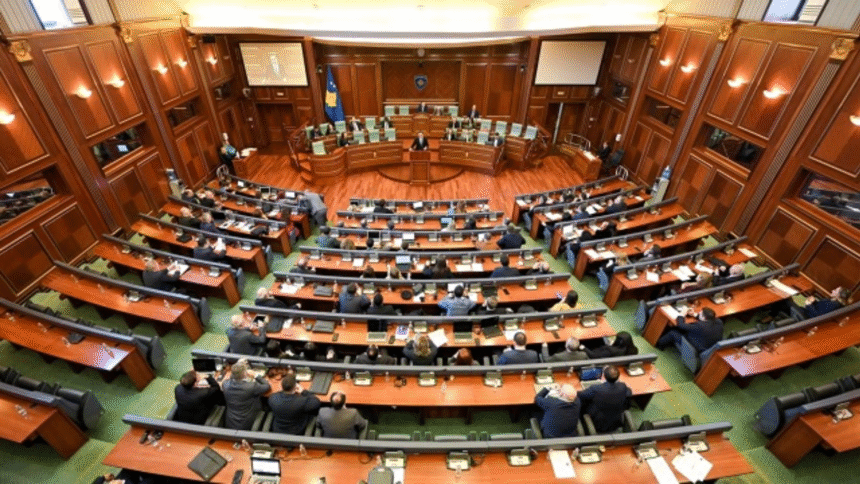After dozens of failed attempts to constitute Kosovo’s Parliament, the Constitutional Court is expected to rule on August 8 whether the vote for the Assembly Speaker should be conducted by secret or open ballot and whether the 30-day constitutional deadline for its formation has expired.
On July 24, the Court issued a temporary injunction barring MPs from taking further steps to constitute the Assembly until August 8, when a final decision is expected.
Prime Minister Albin Kurti’s left-wing Vetëvendosje party won 48 seats in the February elections but fell short of a majority in the 120-seat Parliament. Since the inaugural session on April 15, multiple rounds of voting have failed, leaving Kurti’s party trying to avoid snap elections.
“Of course, we are not interested in new elections. If a decision is made to go to new elections, we will respect it and move forward. The Constitutional Court sees this as the only way out of the situation,” Vetëvendosje MP Saranda Bogujevci told Euronews.
The crisis centers on the voting procedure: Vetëvendosje insists on a secret ballot to secure backing from some opposition MPs without risking party reprisals, while the opposition demands an open vote, as outlined by the Constitution.
The Democratic Party of Kosovo (PDK), the Democratic League of Kosovo (LDK) and President Vjosa Osmani have all requested the Court’s interpretation, arguing the June 26 ruling failed to resolve the deadlock.
AAK MP Daut Haradinaj highlighted that the nomination of Justice Minister Albulena Haxhiu as Speaker is a key sticking point in the standoff between Kurti’s party and the opposition.
The opposition dismissed the secret ballot proposal as unconstitutional and brought the dispute to the Constitutional Court. However, they remain convinced that fresh elections are unavoidable.
“The only demand was for an open vote and a new candidate for Speaker. It’s clear we are heading to new elections soon,” Haradinaj stated.
“Kosovo’s institutions are hostages of Albin Kurti’s stubbornness. We have offered compromises, but the ruling party leader rejects any cooperation,” said PDK MP Vlora Çitaku, adding: “Kosovo’s future is far more important than the political careers of Albin Kurti and Albulena Haxhiu.”
On the other side, Vetëvendosje MPs point to a 2014 Constitutional Court ruling that they argue sets a precedent giving the winning party the right to nominate and elect the Speaker. They claim the opposition’s demands for “constitutional implementation” are just a tactic to block the formation of Kurti’s new government.
“They rejected the coalition, yes. But in my opinion, they didn’t have a valid reason if we truly speak about the country’s best interest,” Bogujevci concluded.







